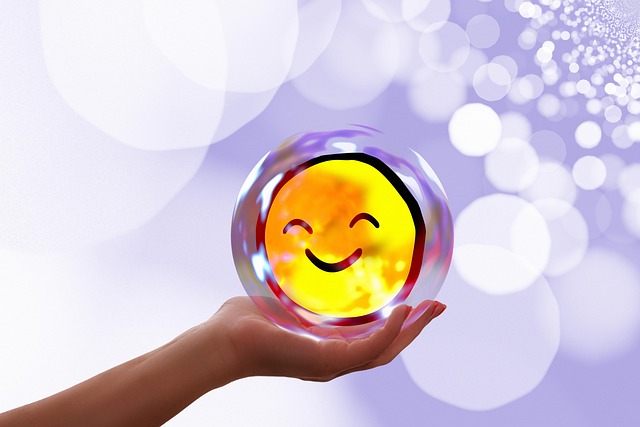Anxiety among elders, especially those with co-occurring PTSD, requires a nuanced approach addressing physical health, cognitive decline, and social isolation. Specialized therapies like adapted CBT focus on present-day triggers, risk management planning, and open dialogue. Mindfulness and meditation, along with tailored physical activities, offer effective coping strategies. Support groups provide safe spaces for sharing experiences, fostering belonging, and building resilience against anxiety, with community outreach extending this support. These integrated approaches revolutionize how elders manage and overcome anxiety-related challenges.
Anxiety management is a critical aspect of mental health, especially for elderly individuals with post-traumatic stress disorder (PTSD). This article delves into effective techniques to combat anxiety, focusing on cognitive behavioral therapy, mindfulness practices, physical activity, and support groups. Understanding the unique challenges faced by elders with PTSD is key. By exploring these strategies, we aim to provide valuable insights into improving mental well-being and promoting peaceful living for this demographic.
- Understanding Anxiety in Elderly Individuals with PTSD
- Cognitive Behavioral Therapy: A Powerful Tool for Anxiety Management
- Mindfulness and Meditation Techniques to Calm the Mind
- Physical Activity and Its Impact on Reducing Anxiety Levels
- Support Groups and Social Connections for Effective Stress Relief
Understanding Anxiety in Elderly Individuals with PTSD

Anxiety among the elderly is a significant concern, especially when co-occurring with Post-Traumatic Stress Disorder (PTSD). Understanding and managing anxiety in this demographic requires a nuanced approach, as aging can bring unique challenges and considerations. Elderly individuals with PTSD often experience heightened anxiety due to flashbacks, nightmares, and triggers related to their traumatic pasts. This condition can be exacerbated by age-related factors such as physical health issues, cognitive decline, and social isolation.
Therapy for elders suffering from PTSD involves specialized interventions that address the specific needs of this population. Techniques like cognitive-behavioral therapy (CBT) are adapted to focus on present-day triggers and challenges while promoting positive thinking and coping strategies. Risk management planning is a crucial component, where mental health professionals help elderly clients identify potential stressors and develop personalized strategies for risk mitigation. Effective communication strategies also play a vital role in building trust, encouraging open dialogue, and fostering a safe space for these individuals to process their traumatic experiences.
Cognitive Behavioral Therapy: A Powerful Tool for Anxiety Management

Cognitive Behavioral Therapy (CBT) has emerged as a powerful tool in managing anxiety disorders, including Post-Traumatic Stress Disorder (PTSD), particularly for elders. This therapeutic approach focuses on challenging and modifying negative thought patterns and behaviors that contribute to anxiety. CBT encourages self-awareness exercises, helping individuals recognize and confront distressing thoughts and beliefs, which can be especially beneficial for elders dealing with PTSD triggers.
By identifying and changing unhelpful cognitive processes, CBT empowers individuals to develop healthier coping strategies. This is particularly relevant in healthcare settings where burnout prevention strategies are crucial. Healthcare providers can benefit from CBT techniques to enhance their resilience against anxiety and stress, ensuring they can offer the best care possible without succumbing to the pressures of their roles. Fostering positive thinking through CBT can revolutionize how elders and healthcare professionals navigate and manage anxiety-related challenges.
Mindfulness and Meditation Techniques to Calm the Mind

Mindfulness and meditation have emerged as powerful tools for managing anxiety, especially among older adults who may be dealing with post-traumatic stress disorder (PTSD). These techniques encourage individuals to focus on the present moment, calmly observing their thoughts and emotions without judgment. Through regular practice, one can cultivate a sense of inner peace and resilience building, which is essential in mitigating anxiety symptoms.
Meditation practices vary, but they often involve deep breathing exercises and mindful attention to bodily sensations. Such activities not only help in reducing stress but also enhance empathy building strategies by promoting self-awareness and understanding of one’s emotional responses. Moreover, conflict resolution techniques can be incorporated into mindfulness routines, enabling individuals to navigate challenging situations with more clarity and composure, ultimately contributing to improved mental well-being.
Physical Activity and Its Impact on Reducing Anxiety Levels

Physical activity serves as a powerful tool for managing anxiety, especially among elders who may be dealing with post-traumatic stress disorder (PTSD). Regular exercise has been shown to reduce symptoms of anxiety by promoting the release of endorphins, often referred to as “feel-good” hormones. These chemicals interact with receptors in your brain to improve your mood and reduce feelings of pain and stress.
Engaging in physical therapy tailored to elders’ needs can be particularly beneficial. Activities like walking, swimming, or gentle yoga not only improve cardiovascular health but also foster a sense of inner strength development. By incorporating these activities into their routine, individuals can enhance their positive thinking and self-esteem improvement, which are crucial components in overcoming anxiety.
Support Groups and Social Connections for Effective Stress Relief

Support groups and social connections play a pivotal role in anxiety management, offering a powerful tool for stress relief, especially among elders dealing with post-traumatic stress disorder (PTSD). These therapeutic settings provide a safe space to share experiences and emotions, fostering a sense of belonging and understanding. Engaging in regular group discussions facilitated by mental health professionals allows individuals to express their struggles and gain valuable insights from peers facing similar challenges.
Effective communication strategies emerge as a key aspect within these groups, encouraging open dialogue and empathy. Participants learn to navigate emotional hurdles collectively, enhancing mental health awareness and building resilience against anxiety. Moreover, community outreach program implementations inspired by group interactions can extend support beyond the therapeutic setting, further normalizing conversations about anxiety and PTSD in older adult populations.
Anxiety management is a vital aspect of enhancing the quality of life for elderly individuals, especially those with post-traumatic stress disorder (PTSD). By combining evidence-based therapies like Cognitive Behavioral Therapy (CBT) and exploring calming practices such as mindfulness and physical activity, elders can effectively navigate their anxiety. Support groups and social connections further reinforce these strategies, offering a holistic approach to well-being. Adopting these techniques empowers the elderly to manage PTSD symptoms, fostering a sense of control and improved mental resilience.












